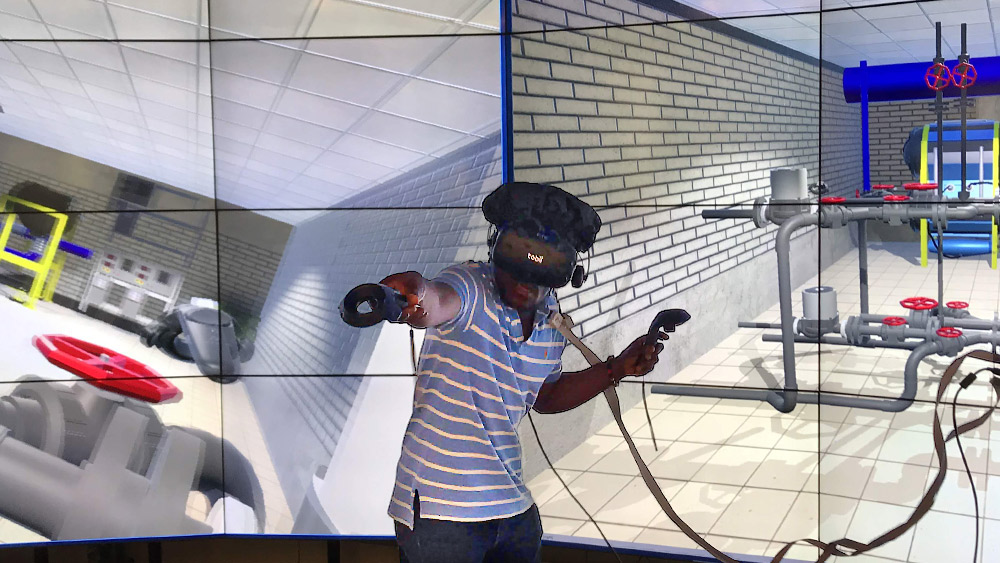
What if you could provide emergency responders with technology that could not only potentially save lives, but make their work more precise and efficient at the same time through the use of novel human augmentation technologies? This concept — called LEARNER — is on its way to becoming a reality thanks to an award from the National Science Foundation (NSF).
LEARNER (Learning Environments with Augmentation and Robotics for Next-gen Emergency Responders) is a mixed-reality learning environment with physical, augmented and virtual reality components for users to learn to work effectively with nascent human augmentation technologies. This new learning environment will feature powered exoskeletons and head-worn augmented reality interfaces to augment responders’ physical and cognitive capabilities.
“LEARNER is a personalized learning platform that will incorporate physiological, neurological and behavioral markers of learning into real-time emergency response scenario evolution that can be accessed via tiered hardware-based learning experiences, ranging from laptops/desktops, to VR (virtual reality) and AR (augmented reality) headsets at field houses, to haptic suits at in-situ emergency response training at national training centers,” said Dr. Ranjana Mehta, principal investigator on the two-year, $5 million project and associate professor in the Wm Michael Barnes ’64 Department of Industrial and Systems Engineering at Texas A&M University and director of the NeuroErgonomics Lab.
The project is funded through the NSF’s newly formed Convergence Accelerator program, which integrates use-inspired, team-based science, cross-cutting partnerships and multidisciplinary efforts to produce impactful solutions toward national-scale societal challenges.
"Convergence Accelerator is producing true innovation," said Douglas Maughan, NSF Convergence Accelerator program head. "All 2019 cohort teams worked hard to further develop their initial concepts, strengthen their teams, and engage with customers and partners; however, Phase II is where we expect to see high-impact deliverables."
“Throughout the process, especially in our evaluation and assessments, we are poised toward staying focused, practical and user/customer-centric, by closely working with the LEARNER advisory board that includes leaders from core technology development companies (e.g., Ford, Boeing), stakeholders and trainers from emergency response organizations, and decision-makers from government agencies (e.g., Federal Emergency Management Agency, National Fire Protection Association),” said Mehta.
The LEARNER team includes researchers from Virginia Polytechnic Institute and State University, the University of Florida, Knowledge Based Systems Inc., and Sarcos Robotics. Dr. Jason Moats and his team from the Texas A&M Engineering Extension Service, a world-renowned leader in emergency response workforce development, and the National Institute of Standards and Testing, are providing guidance, content building and testing capability. Dr. Saurabh Biswas, from the Texas A&M Engineering Experiment Station, is a senior personnel member on the project providing guidance on commercialization.
The team was among 43 Phase I award winners selected in 2019. Phase I award winners competed through a proposal and pitch peer-review process, and nine were selected for awards in Phase II.
Over the next 24 months, the team will advance learning by creating a scalable and replicable platform that will increase the speed of integration and adoption of innovative and emerging human augmentation technologies that benefit the future workforce, not only in emergency response, but also across other industrial sectors, such as manufacturing, construction and health care.
“Imagine if health care workers are quickly able to learn how to use powered exoskeletons using LEARNER — fewer workers would be needed for safer patient handling, thereby potentially reducing the spread of COVID-19-related infections. The award will accelerate our efforts to make immediate impacts to address challenges of national importance such as this,” said Mehta.